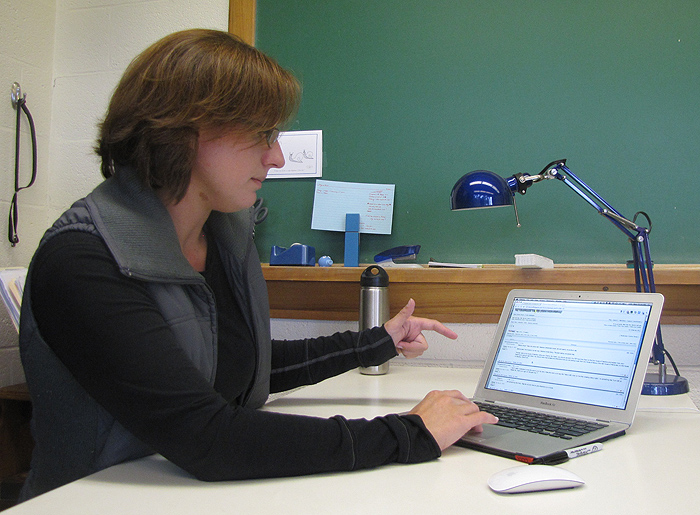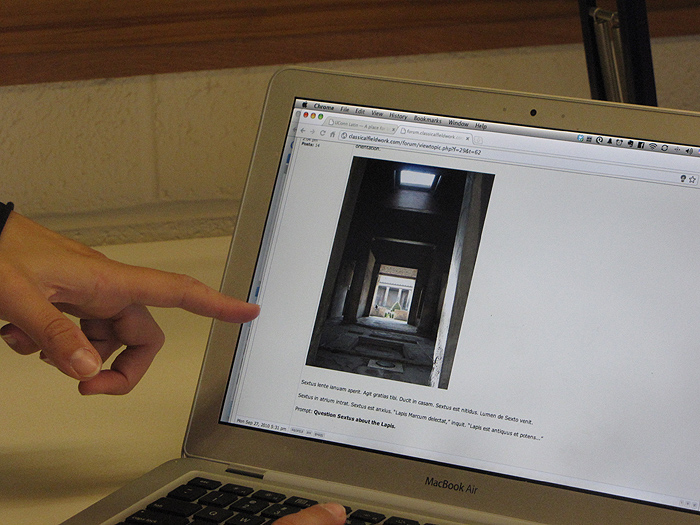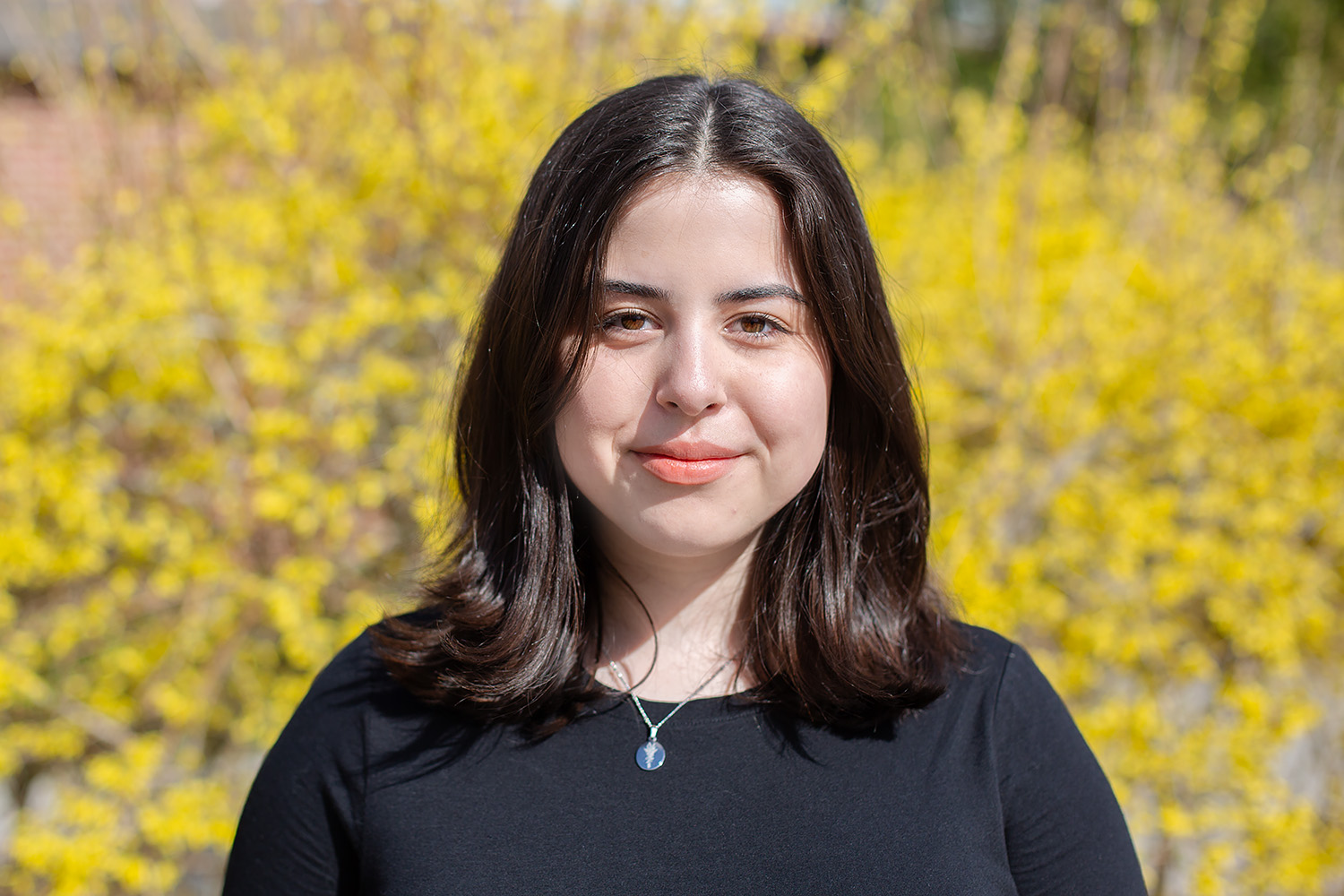
Is Latin moribund? Not if you are learning this ‘dead’ language in Karen Zook’s elementary Latin class here in Storrs. Nor for students in a select number of Connecticut high schools where Operation LAPIS has students not only doing their homework but asking for more.
Roger Travis, an associate professor of classics in the College of Liberal Arts & Sciences, has developed an introductory-level Latin curriculum that combines a traditional format, using the well respected Cambridge Latin Course, with modern game theory. The result takes a learning activity and turns it into a game.
According to Travis, “People have tried for years to make introductory Latin engaging. The Cambridge Latin Course does this by using a story about a Roman family that lives in Pompeii just before the eruption of Vesuvius in AD 79. However, we decided that rather than just having students read the story, we would take it a step further and make a game out of it.”
The classroom portion of both the high school and college level classes is not substantially different from traditional classes in the subject. The difference comes when students are divided into teams and are challenged to be the first to solve the clues given to them by their leader in a role playing activity. This challenge takes the place of traditional homework.

Players on each team can see the answers of their teammates as they work through their challenges, and their instructor can tell via their screen names which players are the most active participants. While teams cannot see the underlying collaboration of the other teams, they do see what the other teams have decided to do in response to the prompts that have sent them on their journey.
Kevin Ballestrini, a former student of Travis’s who is now a teacher at Norwich Free Academy, played a pivotal role in developing the program. He says, “We created a parallel story of our own that weaves in and out of the text. Students visit places online that they’ve read about in the book. They’re asked questions about the characters they are playing, and they’re given challenges that they have to solve as a group, while learning about themselves as individuals.”
Along the way, students can collect CARDs (Classical Attunement Reward Devices, which look remarkably like baseball cards) for their efforts in filling out individual sheets that have examples of key elements of Latin morphology and syntax, and facts about Roman culture.
In addition to making the study of Latin fun, Ballestrini has noticed another benefit of the team approach to problem solving, especially with his freshmen. “NFA is a huge high school,” he says. “We’ve got an enrollment of about 2,500, with kids coming from eight different towns. I have two Latin One classes; one is using LAPIS and the other is a traditional classroom. As soon as the day after their first assignment, the kids in the LAPIS class were much more engaged and social with one another because they had to do their homework as a team, most often with kids they hadn’t known before.”
In fact, he says, he’s had to place a 9 p.m. moratorium on team collaboration so the students serving as Lead Operatives can prepare their reports. Otherwise, he says, “some of them would just keep going”.
Zook is a third-year Ph.D. student in Comparative Literary & Cultural Studies in the Department of Modern & Classical Languages. With a background in the classics, she is quick to recognize that the study of a foreign language can be intimidating.
“This is a solid program, and it works, “she says. “There aren’t a lot of outside resources when you are studying Latin. You can’t just go and ask your friends if your accent sounds right, as you can when you’re studying French or Spanish. Part of the idea with LAPIS is to create a kind of immersion experience … it’s the next best thing to study abroad.”
As in any class, both Ballestrini and Zook point out, the students who are most engaged in the learning process do the best. Justin Tito, a junior anthropology major and a veteran of Travis’ gaming course in Homer, which he took last semester, agrees.
“In the Homer class, we played Lord of the Rings online as part of the course and we wrote essays on how it related to the Iliad and the Odyssey,” says Tito. “We still had to read the texts and understand them, but then we got to sit down for an hour and play a video game, and then you’d notice things in the game that pertained to what you had just read.”
Of the Latin class, he says, “LAPIS gives us the ability to have fun when we do our homework and when we do the reading. We’re learning without knowing that we’re learning. In our forums, we talk through what our characters would do, and give our responses. It makes learning less of a chore and more of an experience.”


